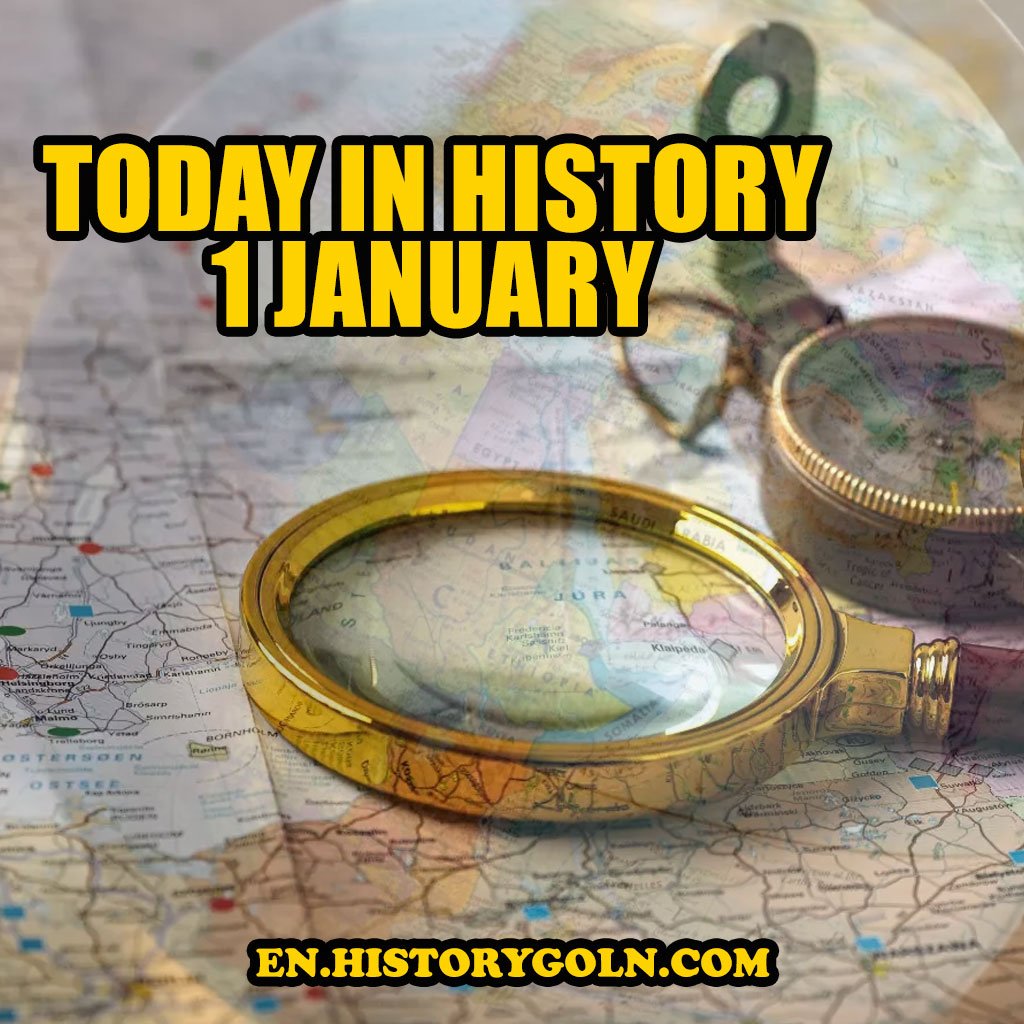The first day of the new year, January 1st, holds a particular significance across cultures and countries. Apart from being universally recognized as New Year’s Day, January 1st has witnessed a multitude of events, milestones, and turning points throughout history. This article aims to explore and delve deep into various historical occurrences that have taken place on January 1st.
Today in History: 1 January

1. The Establishment of the Roman Republic: 509 BC
The dawn of January 1st in 509 BC marked the establishment of the Roman Republic. The previous Etruscan kings had been expelled from Rome the year prior, giving rise to a new political system in which two annually elected magistrates, or consuls, held office. This political transformation laid the foundation for Rome’s ascent to becoming one of the most powerful empires in history.
2. The Circumcision Feast: AD 1
According to Christian tradition, January 1st is recognized as the Feast of the Circumcision of Christ. This feast commemorates the biblical event wherein Jesus, eight days after his birth, was circumcised in line with Jewish customs. Though not as widely observed today, it used to be a significant celebration in the medieval Christian calendar.
3. Charlemagne Crowned Emperor: 800 AD
One of the most critical political events in the Middle Ages happened on January 1st, 800 AD, when Charlemagne, also known as Charles the Great, was crowned the Holy Roman Emperor by Pope Leo III in Rome. This act revived the Western Roman Empire’s concept and established the precedent of Papal authority in the crowning of Western European monarchs.
4. The Adoption of the Gregorian Calendar: 1583
The Gregorian calendar, which we use today, was first introduced by Pope Gregory XIII in October 1582. However, it was on January 1st, 1583, that the calendar came into effect in various Catholic countries. This change aimed to correct the ten-day discrepancy between the Julian calendar and the solar year. Over time, the Gregorian calendar was adopted globally, and January 1st became almost universally recognized as the beginning of the new year.
5. Creation of the United Kingdom: 1801
January 1st, 1801, marked the official union of Great Britain and Ireland, leading to the formation of the United Kingdom of Great Britain and Ireland. This came after the British parliament passed the Acts of Union 1800. This political union lasted until 1922 when a significant part of Ireland left to become what is now the Republic of Ireland.
6. Emancipation Proclamation: 1863
In the midst of the American Civil War, President Abraham Lincoln issued the Emancipation Proclamation on January 1st, 1863. This executive order declared the freedom of more than 3 million enslaved African Americans in Confederate-held territories. While the proclamation didn’t immediately free all slaves, it was a pivotal step towards the abolition of slavery in the United States.
7. Introduction of the Euro: 1999
At the stroke of midnight on January 1st, 1999, the Euro was introduced as an accounting currency for 11 of the European Union’s member states. While the physical currency wasn’t introduced until three years later, this marked a significant step towards European economic integration, making it easier for countries to trade and collaborate economically.
8. Estonia Joins the Eurozone: 2011
Sticking to the theme of the Euro, Estonia adopted the Euro as its official currency on January 1st, 2011, becoming the 17th member of the Eurozone. This was a momentous step for Estonia, showcasing its commitment to deeper integration with the European community after its independence from the Soviet Union in 1991.
9. Other Notable Events:
- 404 AD: The last known gladiator fight in Rome takes place.
- 1502: The Portuguese explorers, led by Pedro Álvares Cabral, land in Guanabara Bay on the coast of South America, naming it Rio de Janeiro (River of January).
- 1776: General George Washington hoists the Continental Union Flag.
- 1892: Ellis Island in New York opens its doors, becoming the United States’ primary immigration station.
- 1901: The Commonwealth of Australia is formed, uniting six previously separate colonies.
- 1959: Fidel Castro and his revolutionaries overthrow Cuban leader Fulgencio Batista.
Cultural Significance of January 1st
Beyond these significant historical events, January 1st holds immense cultural and traditional significance across the globe. It’s the day of new beginnings, resolutions, and hope. People all over the world celebrate with fireworks, feasts, and family gatherings. It’s also a time for reflection on the past and aspirations for the future.
In many cultures, there are specific traditions and superstitions related to January 1st. For example:
- In Spain and some other Spanish-speaking countries, it’s customary to eat 12 grapes at the stroke of midnight, one for each chime of the clock. This act is believed to bring good luck for each month of the coming year.
- In Japan, the first day of the year is celebrated as “Ganjitsu.” Families usually clean their homes and prepare “Osechi,” a special dish that is believed to bring good fortune.
- In the Southern United States, eating black-eyed peas on New Year’s Day is thought to bring prosperity.

January 1st, without a doubt, holds a remarkable place in the annals of history. The sheer range of events—from the formation of empires and the inception of calendars to the abolition of age-old practices and the dawn of new currencies—makes it a day worth remembering and studying.
These events not only shaped the course of human civilization but also signify the human spirit’s resilience, ambition, and incessant quest for progress. As we celebrate New Year’s Day, it’s vital to remember the historical significance of this day and appreciate the myriad events that have taken place on this date, affecting millions of lives and shaping the world as we know it.
